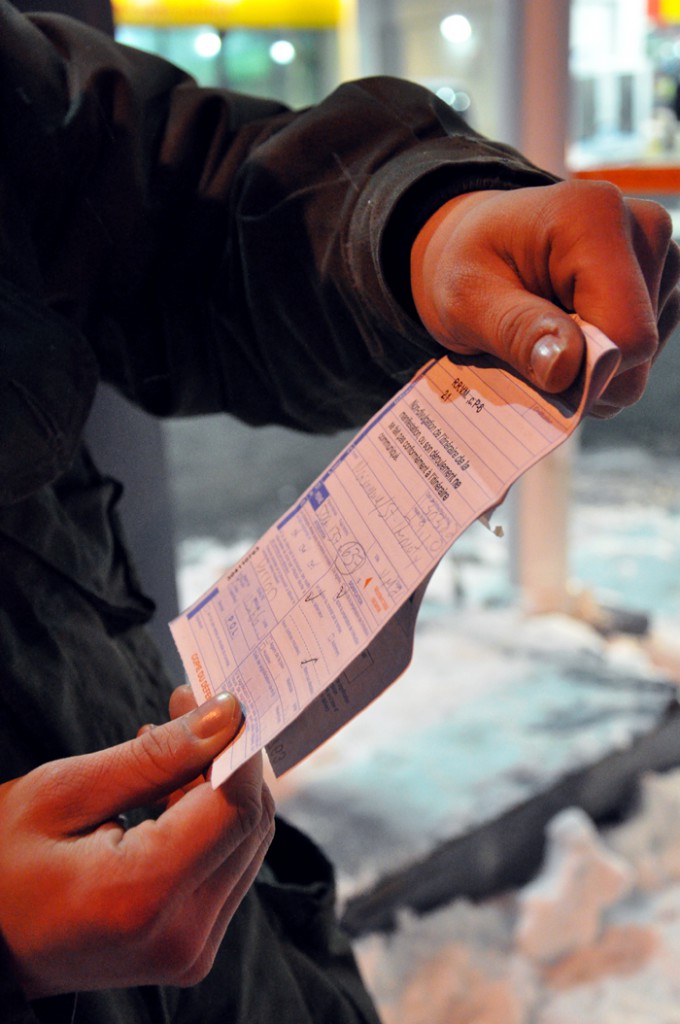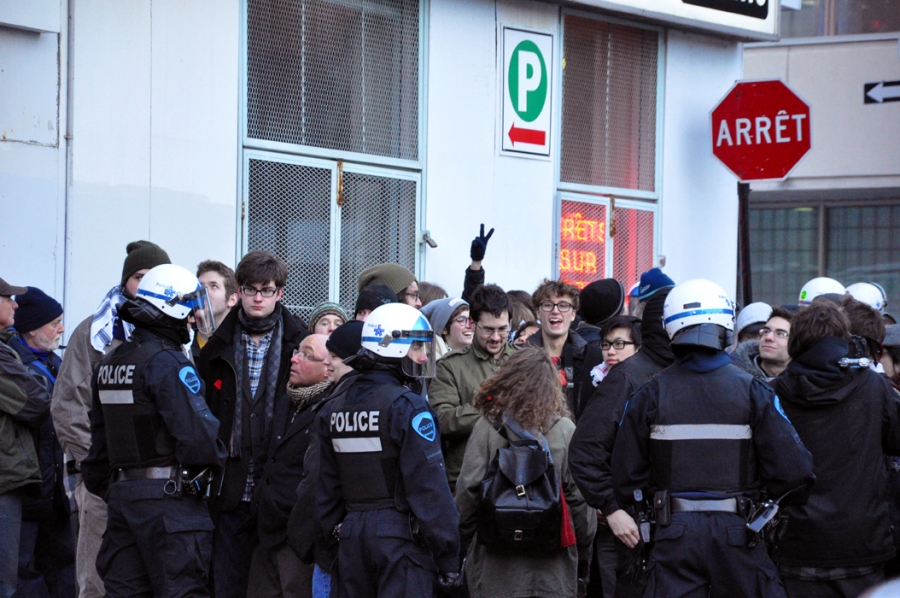By Karen Nickel
DIALOG REPORTER
Is protesting a thought crime?

A ticketed protestor holds up a souvenir from the night’s demonstration – a $637 fine for violating bylaw P-6. PHOTO: ERIN SPARKS / THE LINK
Montreal police have stated that people have the right to freedom of expression, but not the right to protest. The SPVM (Montreal’s police), since the “Higher Education Summit” in February, have used municipal by-law, P-6, to pre-emptively shut down protests before they even begin, labelling them as illegal.
At the march against the Summit, police tried to intervene and break up the march into smaller, easier to manage sizes. Confusion and panic set in for some in the crowd. Max Silverman, a law student at UQAM (Universite du Quebec a Montreal), who was on strike for six months last year, told me about the demonstration,
“I was really taken aback (and) in shock when while rounding a corner all of a sudden the crowd was running back in my direction. So we kept going and then in another direction a wall of riot cops moved in. Then horses entered the crowd and sound grenades started going off and things descended into terrifying chaos. At one point, even though the police were clearly on ‘dispersal’ rather than ‘kettle’ mode, there was actually no where to disperse to, with cops coming in from all directions. So the first 3/4 (of the march was) overly dull for my liking, and then the last 1/4 was PTSD-inducing(ly) terrifying. It was strange”.
Other than direct police intervention, one tool the state has been employing since the student strike began has caught thousands in its net. During the 2012 strike, a provincial Law 78, later becoming Law 12, (which has since been repealed), was hurried into place, as was an amendment to municipal by-law (P- 6) that would make demonstrations that failed to provide their route to police at risk being labelled illegal. P-6 also stipulates that protesters cannot wear face coverings (even scarves in the winter); and it sees increases to fines to a staggering $637.
Demonstrators at the annual Anti Police Brutality march were stopped before they moved the protest into the street, with arrests of people before any protesting had begun. In all, roughly 240 people were arrested before the protest moved one block from the meeting spot. At the last three demonstrations, police have used P-6 to end demonstrations; kettling and ticketing even those who showed up at the meeting point. A similar situation happened during the march marking the one year anniversary of the beginning of the student strike that saw 20,000 people attend last year but only a few hundred showed this year and of those 200 were arrested. So far for 2013, 600 people have been arrested and/or interrogated from the beginning of March alone.
After the latest pre-emptive detention and ticketing of 200 + students, faculty and Anarcho-panda, Sergeant Jean-Bruno Latour, spokesperson for the SPVM, told La Presse. “We do not want to hold citizens who wish to go to downtown Montreal hostage. The Charter (of rights and freedom) protects the right to freedom of expression, but there is no right to protest.” [Translated from French]
Students, activists, faculty and Charter of Rights proponents are planning more rallies and marches as summer approaches; and they don’t plan on handing in an itinerary, but they are bringing books in case they are kettled.
UPDATE: On April 5, 297 people were arrested under P-6 at the “Demonstration against the Repression of Demonstrations”.


